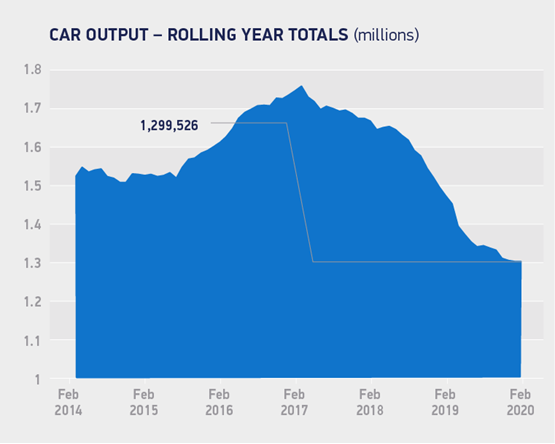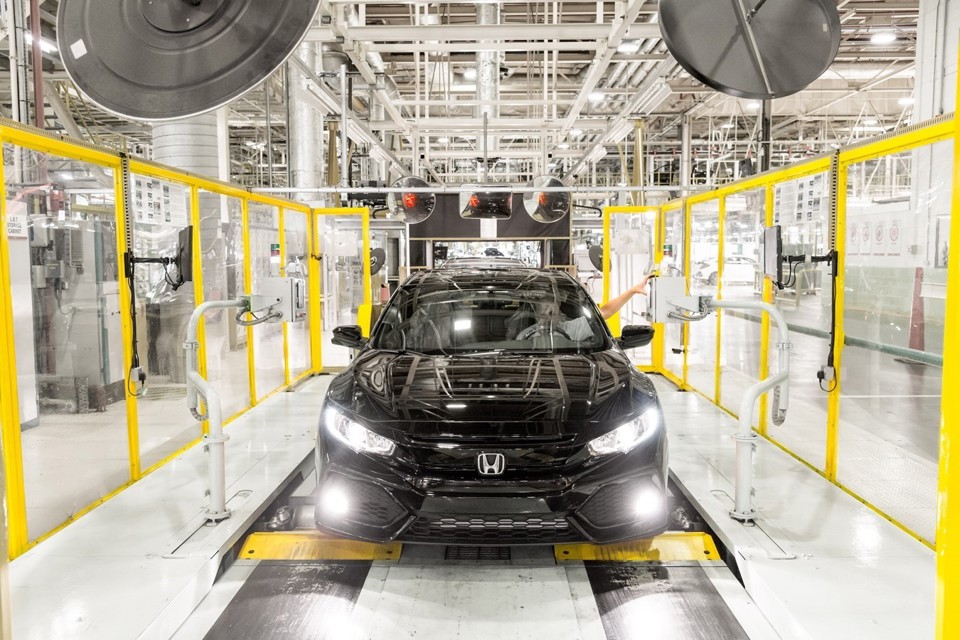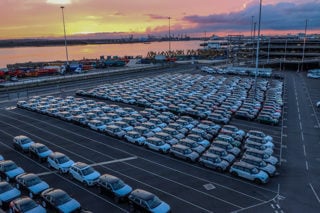The number of cars built in the UK is predicted to fall by 200,000 units this year due to factory closures and a fall in demand caused by the Coronavirus pandemic.
According to the Society of Motor Manufacturers and Traders (SMMT), UK car production started to decline in February. The organisation’s latest figures suggest a drop of 0.8%, representing 1,000 cars.
Initial impact analysis suggests coronavirus could wipe some 200,000 units off the UK’s car output in 2020, as the sector urges government to accelerate access to emergency support for all businesses.
Mike Hawes, SMMT chief executive, said, “Despite the myriad global challenges the UK automotive industry has faced in recent times, it remains fundamentally strong and February’s figures reflect that. However, these figures also reflect the calm before the storm. With UK car plants now effectively on national shutdown and many global markets closed, the outlook is of deep concern.
“We wholeheartedly welcome government’s extraordinary package of emergency support for businesses and workers, but this must get through to businesses now. If we’re to keep this sector alive and in a position to help Britain get back on its feet, we urgently need funding to be released, additional measures to ease pressure on cashflow and clarity on how employment support measures will work.”


At the time of writing UK car production has ground to a halt, with major plants such as Jaguar Land Rover, Nissan, Honda and Toyota temporarily closed.
UK commercial vehicle production declined more drastically in February, dropping by almost 14%, with 7,980 vans, trucks and buses manufactured.
The SMMT says the performance follows a “bumper” February in 2019 when output grew by more than half ahead of key model changes, and reflects the cyclical nature of this low volume sector.
Hawes added: “The UK’s commercial vehicle sector is critical to the fight against coronavirus, working night and day to deliver food, medicine and other essential goods and services to support society’s most vulnerable and help prop up the economy. Government’s pledge of emergency finance and other measures to help protect these businesses and workers during the crisis has been widely welcomed but it is now about getting that relief to all companies in the fastest time possible. Meanwhile, additional provisions for official road-approval testing to get even more essential vehicles in service and supporting the national effort must also be implemented urgently.”






















Login to comment
Comments
No comments have been made yet.